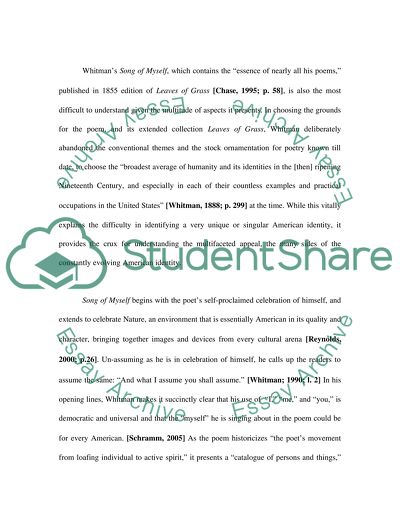Cite this document
(“Walt Whitman's Song of Myself Book Report/Review”, n.d.)
Retrieved from https://studentshare.org/sociology/1501734-walt-whitmans-song-of-myself
Retrieved from https://studentshare.org/sociology/1501734-walt-whitmans-song-of-myself
(Walt Whitman'S Song of Myself Book Report/Review)
https://studentshare.org/sociology/1501734-walt-whitmans-song-of-myself.
https://studentshare.org/sociology/1501734-walt-whitmans-song-of-myself.
“Walt Whitman'S Song of Myself Book Report/Review”, n.d. https://studentshare.org/sociology/1501734-walt-whitmans-song-of-myself.


